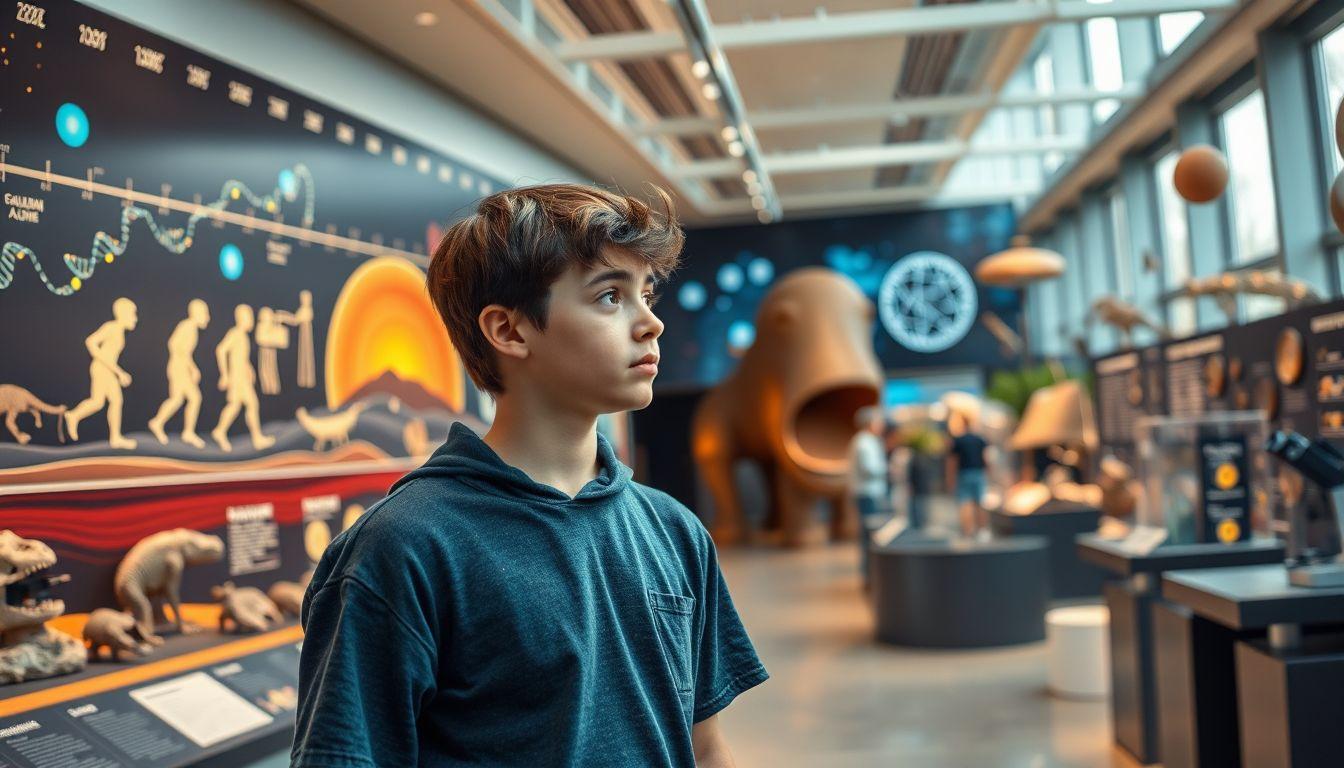Liputan6.com, Jakarta The famous words "God is dead" come from a German thinker who lived long ago. These words have made many people think deeply about life, faith, and what it means to be human. This statement is not about God actually dying, but about how people's beliefs have changed over time. Let us explore what these powerful words really mean and why they still matter today.
What Does the God Is Dead Quote Actually Mean

- The quote means that people no longer believe in God the same way they used to.
- It suggests that science and reason have replaced religious faith for many people.
- The statement talks about how modern thinking has changed our view of the world.
- It does not mean that God literally died, but that the idea of God has lost power.
- The quote shows how society moved away from religious explanations for everything.
- It points to a time when people started questioning old beliefs and traditions.
- The words describe a major change in how humans understand their place in the universe.
- It reflects the growth of scientific knowledge that challenged religious teachings.
- The quote suggests that humans have become responsible for creating their own meaning in life.
- It shows how the authority of religious institutions has weakened over time.
- The statement indicates that people must find new ways to understand right and wrong.
- It represents the end of an era where God was the center of all human thinking.
- The quote highlights how education and learning have changed human beliefs.
- It suggests that humans have grown beyond needing a divine parent figure.
- The words point to humanity taking control of its own destiny and future.
Advertisement
The Story Behind This Famous Statement

- A German philosopher wrote these words in a book about science and knowledge.
- The story tells of a crazy man running through a marketplace with a lantern.
- This man was looking for God in broad daylight, which seemed strange to others.
- People in the marketplace laughed at him and made fun of his search.
- The crazy man then announced that God was dead and that humans had killed him.
- He asked how people could clean the blood from their hands after this deed.
- The man wondered what new celebrations and games people would need to create.
- He questioned whether humans were great enough to handle such a huge responsibility.
- The crazy man suggested that people might need to become gods themselves.
- He realized he had come too early and that people were not ready to understand.
- The story shows that this news was too big for most people to grasp at that time.
- The man broke his lantern and said his message would take time to reach everyone.
- He compared this event to lightning and thunder that take time to be heard.
- The story ends with the man singing funeral songs in empty churches.
- He called these churches the tombs and graves of the dead God.
Why This Quote Became So Important
- The words challenged the most basic beliefs that people had held for centuries.
- It forced people to think about life without the comfort of religious faith.
- The quote became a symbol of modern thinking and scientific progress.
- It represented the courage to question everything, even the most sacred ideas.
- The statement showed how human knowledge had grown beyond old explanations.
- It became a rallying cry for those who wanted to think freely about life.
- The quote inspired many other thinkers to explore new ideas about existence.
- It marked a turning point in how humans understood their relationship with the divine.
- The words became famous because they captured a feeling many people had but could not express.
- It helped start conversations about what life means without religious guidance.
- The quote became a way to discuss the role of science in modern society.
- It showed that humans could be brave enough to face an uncertain universe alone.
- The statement became a test of intellectual honesty and courage.
- It challenged people to create their own values instead of following old rules.
- The quote became a foundation for many new ways of thinking about human life.
Advertisement
What Happens When People Stop Believing
- Without God, people must decide for themselves what is right and wrong.
- The old rules about how to live may no longer seem important or true.
- People might feel lost without clear guidance from a higher power.
- Some may become sad or worried about the meaning of their lives.
- Others might feel free to make their own choices without fear of punishment.
- Society might struggle to agree on basic values and principles.
- People may need to find new sources of comfort during difficult times.
- The fear of death might become stronger without belief in an afterlife.
- Humans might feel more responsible for taking care of each other.
- Some people might become selfish if they think nothing matters.
- Others might work harder to make the world better since this life is all we have.
- Communities might need to create new traditions and celebrations.
- People might rely more on science and reason to understand the world.
- The idea of absolute truth might disappear, making everything seem relative.
- Humans might need to be stronger and more independent than before.
Different Ways People Have Understood This Quote

- Some people think it means atheism has won and religion is finished.
- Others believe it shows that humans have grown up and no longer need God.
- Many see it as a warning about the dangers of losing faith and meaning.
- Some interpret it as a call to create new values and ways of living.
- Religious people often view it as a sad description of modern spiritual emptiness.
- Scientists might see it as proof that reason has replaced superstition.
- Philosophers use it to discuss the problems of finding meaning without God.
- Some think it predicts a future where humans become their own gods.
- Others worry it leads to a world where nothing has real importance.
- Many see it as describing the natural result of human learning and growth.
- Some believe it shows the need for new forms of spirituality.
- Others think it proves that humans can be moral without religious commands.
- Many interpret it as a challenge to create better ways of living together.
- Some see it as explaining why modern people often feel anxious and lost.
- Others view it as the beginning of true human freedom and responsibility.
Advertisement
How This Idea Affects Modern Life

- Many people today live as if God does not exist, even if they say they believe.
- Science has become the main way people try to understand the world.
- Governments make laws based on human needs rather than religious commands.
- People often choose their own moral values instead of following traditional rules.
- Many find meaning in personal success, relationships, or helping others.
- The idea influences how people think about death and what happens after.
- It affects how parents teach their children about right and wrong.
- Many people feel pressure to create their own purpose in life.
- The concept influences art, music, and literature in the modern world.
- It shapes how people think about human rights and equality.
- Many struggle with feelings of emptiness or lack of direction.
- Others feel liberated to explore new ways of being human.
- The idea affects how people view suffering and tragedy.
- It influences debates about ethics in science and technology.
- Many people seek new forms of community and belonging.
The Connection Between Science and Faith

- Scientific discoveries have challenged many religious explanations of the world.
- The theory of evolution questioned the story of divine creation.
- Astronomy showed that Earth is not the center of the universe.
- Psychology explained human behavior without reference to souls or spirits.
- Medicine found natural causes for diseases once blamed on divine punishment.
- Physics revealed natural laws that govern the universe without divine intervention.
- Archaeology uncovered evidence that contradicted some religious histories.
- Biology showed that humans are animals with natural origins.
- Chemistry explained natural processes without needing supernatural causes.
- Geology revealed that the Earth is much older than religious texts suggested.
- Neuroscience began to explain consciousness and thought as brain functions.
- Technology gave humans powers once thought to belong only to gods.
- Scientific methods provided reliable ways to test claims about reality.
- Education spread scientific knowledge to more people than ever before.
- The success of science made religious explanations seem less necessary.
Advertisement
What Comes After Traditional Religion
- Some people create personal spiritual practices without organized religion.
- Others find meaning in human relationships and love for family and friends.
- Many focus on making the world better through social action and charity.
- Some turn to philosophy and wisdom traditions for guidance.
- Others find purpose in creative expression through art, music, or writing.
- Many seek meaning through connection with nature and the environment.
- Some create new communities based on shared values rather than shared beliefs.
- Others find fulfillment in learning and expanding human knowledge.
- Many focus on personal growth and becoming the best version of themselves.
- Some find meaning in the simple pleasures and beauty of everyday life.
- Others create purpose through work that helps solve human problems.
- Many build meaning through traditions and rituals they create themselves.
- Some find direction through meditation and mindfulness practices.
- Others discover purpose in protecting and caring for future generations.
- Many combine elements from different traditions to create personal meaning.
Challenges of Living Without Divine Guidance

- People must take full responsibility for their choices and actions.
- There is no guarantee that good people will be rewarded or bad people punished.
- Death becomes final with no promise of reunion with loved ones.
- Suffering may seem meaningless without a divine plan to explain it.
- People must create their own hope instead of relying on divine promises.
- Moral decisions become more complex without clear divine commands.
- The universe may seem cold and indifferent to human concerns.
- People might feel small and insignificant in the vastness of space.
- There is no ultimate authority to appeal to when facing difficult questions.
- The burden of creating meaning can feel overwhelming for some people.
- Without divine forgiveness, people must find other ways to deal with guilt.
- The fear of making wrong choices increases when there is no divine guidance.
- People must find strength within themselves during times of crisis.
- The responsibility for human progress rests entirely on human shoulders.
- There is no cosmic justice to ensure that wrongs will eventually be made right.
Advertisement
Why This Quote Still Matters Today
- It helps explain why many people feel lost or anxious in modern life.
- The quote challenges us to think deeply about what gives life meaning.
- It reminds us that humans have the power to shape their own destiny.
- The statement encourages people to take responsibility for their actions.
- It helps us understand the ongoing conflict between science and religion.
- The quote explains why traditional moral rules are being questioned.
- It shows why people are searching for new forms of spirituality.
- The statement helps explain changes in art, literature, and culture.
- It reminds us that freedom comes with the burden of choice.
- The quote challenges us to create better ways of living together.
- It helps explain why some people turn to extreme ideologies for meaning.
- The statement encourages us to value this life since it may be all we have.
- It reminds us that human knowledge and understanding continue to grow.
- The quote challenges us to be brave enough to face uncertainty.
- It shows that even the most basic beliefs can change as humans learn and grow.
:strip_icc()/kly-media-production/avatars/1860534/original/066891900_1744691596-WhatsApp_Image_2025-04-15_at_11.32.22_686af95d.jpg)
:strip_icc()/kly-media-production/medias/5258817/original/032183400_1750400680-6ecNPz4O3a.jpg)
:strip_icc()/kly-media-production/medias/4499960/original/053017900_1689157802-fantasy-astral-wallpaper-composition.jpg)
:strip_icc()/kly-media-production/medias/3923210/original/068003800_1643884761-candlelight-ge11ae3b22_640.jpg)